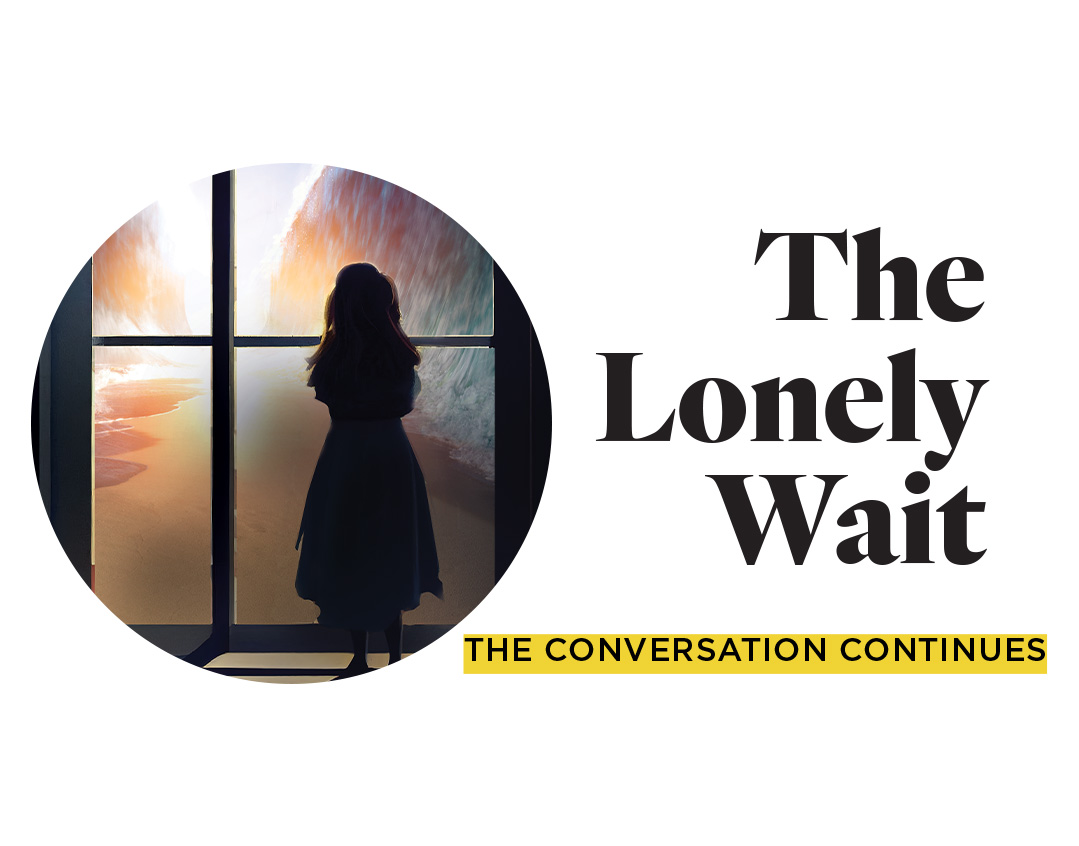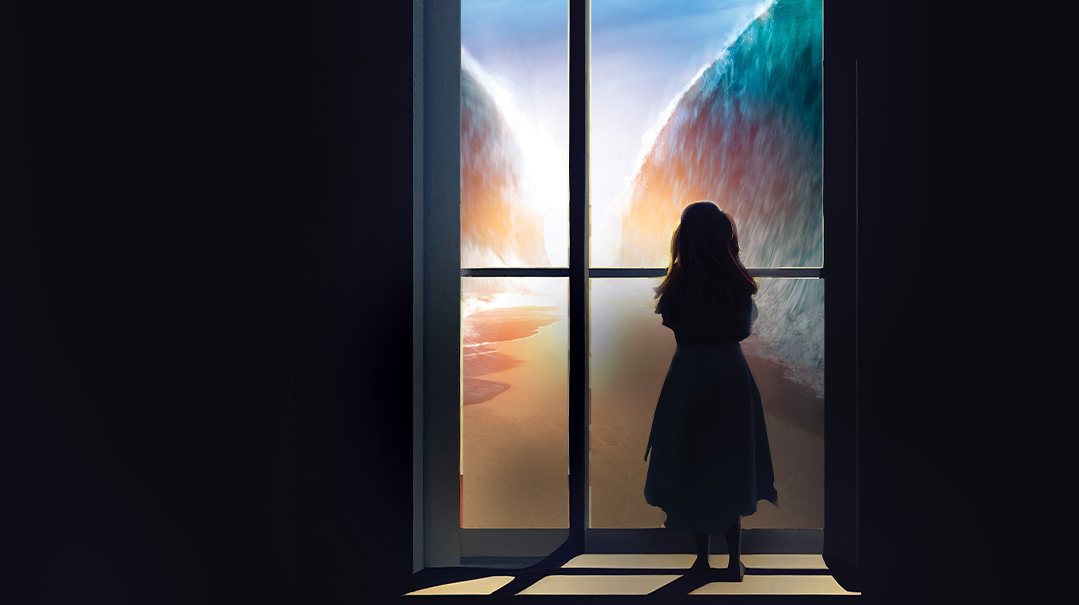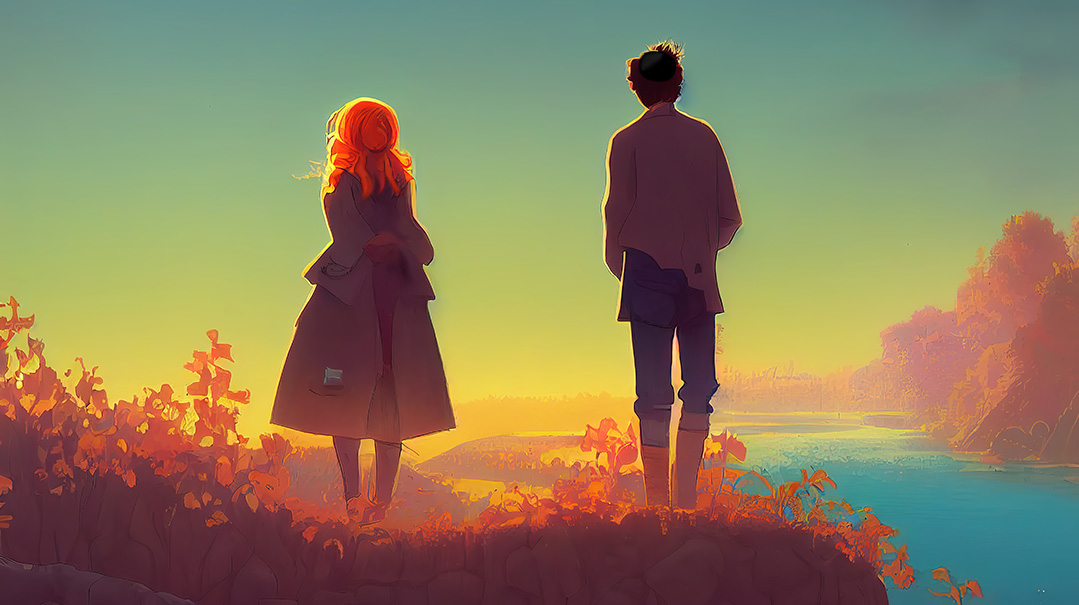Praying for Each Other
| January 17, 2023Rabbi Bochner and Rabbi Ginzberg did more than just cry out over the plight of Klal Yisrael’s singles
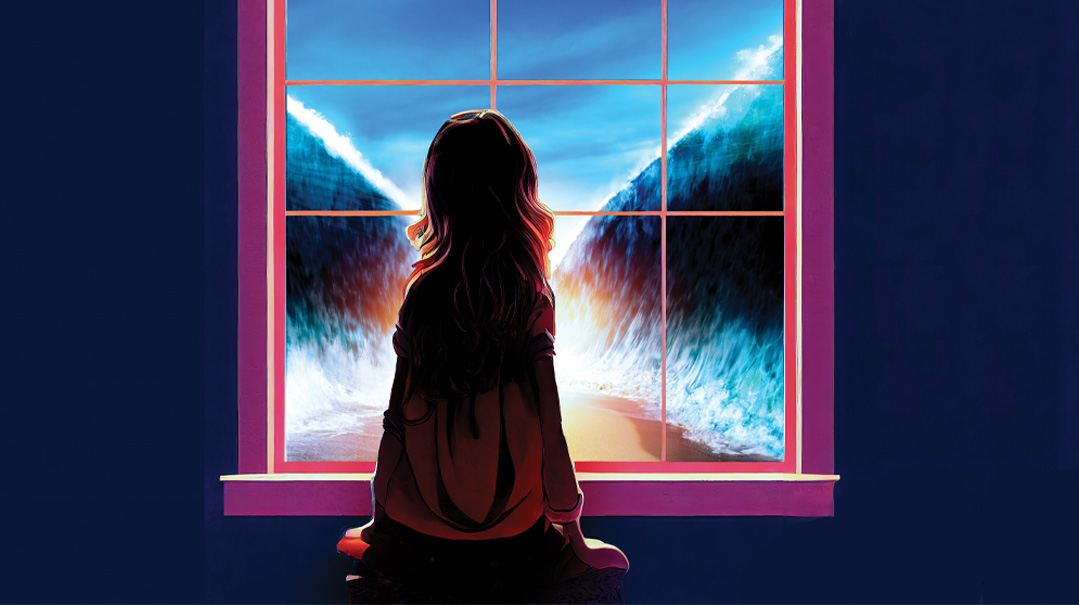
Much ink has been spilled and myriad tefillos whispered over the plight of Klal Yisrael’s singles. Yet Rabbi Shlomo Bochner of Bonei Olam and Rabbi Chaim Aryeh Zev Ginzberg of a Cedarhurst kehillah did more than just cry out: They considered how to make a real change on the ground, restoring the dignity of the young women while at the same time making sure their plight is part of the public debate
When Rabbi Chaim Aryeh Zev Ginzberg walked into the Armon Hotel in Stamford, CT, for the Ohel Sarala shabbaton last week, he was overwhelmed by the sight of hundreds of single young women who had gathered from around the country and beyond — and that was without shadchanim mingling through the crowds or circulating lists of potential shidduchim.
“They came because they knew we care about them, that we’re validating their pain,” says Rabbi Ginzberg, cofounder of the organization as a zechus for his daughter Sarala a”h, after she passed away in 2015 when she was just 17. “We remind them how special they are to Hashem and to Klal Yisrael. We want to restore the dignity of these girls while at the same time making sure their plight is part of the public debate.”
The seeds of Ohel Sarala, which pairs up young single women in prayer with couples struggling with infertility, were actually originally planted by Bonei Olam founder and trailblazer Rabbi Shlomo Bochner and Rav Aharon Leib Steinman ztz”l, with whom Rabbi Bochner shared a close relationship.
Rabbi Shlomo and Chanie Bochner, a Bobover chassidish couple from Boro Park, channeled the pain of empty arms and two decades of treatments, connections, and experience to help thousands of childless couples build their families. Since the first Bonei Olam baby was born in 1999, the organization, with multiple branches around the world, has been at the forefront of genetic research and fertility assistance to challenged couples, and even to those to whom doctors could offer no hope.
Rav Aharon Leib once confided in Rabbi Bochner that he could not sleep at night for two reasons: for all the couples struggling with infertility and for all the girls struggling to find shidduchim. He also told Rabbi Bochner about a segulah to pair singles with childless couples, where each davens for and gives tzedakah as a merit for the other.
Meanwhile, the Ginzbergs were looking for a zechus for the neshamah of their daughter Sarala a”h (who struggled with a rare liver disease since birth and passed away 17 years later of untreatable complications). Rabbi Ginzberg, rav of the Chofetz Chaim Torah Center of Cedarhurst, NY, remembers his last conversation with Sarala. “I promised Sarala that we would never forget her. I said to her, ‘the whole world is going to remember you.’ ”
Around that time, he received a call from an older single woman who wanted to discuss a pressing issue. This woman told Rabbi Ginzberg about a recent convention she’d attended with a group of other singles in their 30s and 40s, where one of the women shared the steps she had taken to preserve her fertility. This piece of information caused quite a stir, and now the others wanted Rabbi Ginzberg’s advice. The desperation shocked him, and he knew this question had been dropped into his lap for a reason.
“The pain of these women was coming from the depth of their neshamos and it touched me very deeply, “ Rabbi Ginzberg recalls. “I took the sh’eilah very seriously and asked if I could first discuss it with Rav Dovid Feinstein and then circle back to them.”
The particular question, and the larger picture, continued to occupy Rabbi Ginzberg, when he ran into his Catskills summer neighbor Rabbi Shlomo Bochner. Knowing Rabbi Bochner had spent the past two decades dealing with the most intricate and complex fertility issues, he broached the subject of fertility preservation, not really having any expectations. But when Rabbi Bochner answered him, “We’ve already helped hundreds of girls. Tell them to call me, and I’ll help them,” he knew he’d found an address. And when Rabbi Bochner then shared with him the conversation he’d had with Rav Steinman, the idea of connecting singles and childless couples, he knew the direction he needed to take — and Ohel Sarala was born.
It didn’t take long before a system was set in place: Bonei Olam provides the contact information of the couples (who wish to join the tefillah initiative), and Ohel Sarala connects them with singles from age 19 and up — each davening and supporting the other.
At first Rabbi Ginzberg told his wife, Avigail, that if they’d be zocheh to make one, two, maybe three shidduchim, there would be no greater zechus or legacy for their daughter. Yet the initiative exploded beyond all expectations: Since its founding in 2016, 3,994 members have gotten engaged, and 507 couples have had babies.
“From the first engagement to the 100th to the 1,000th to the milestone number 4,000 that we’re about to reach, with hundreds of babies born to struggling couples, each one brings with it a deeper appreciation of the koach of the words of the aged gadol hador,” Rabbi Ginzberg says in reference to the cryptic words of Rav Steinman. “It also gives us a deeper appreciation of the koach hatefillah, especially when directed on behalf of another.”
Since its inception, Ohel Sarala has been monitored by Rebbetzin Avigail Ginzberg, who spends hours each day speaking with and supporting singles, although she remembers just six years ago when the initiative began as a small project on her home computer.
“I created a database with names of couples that Bonei Olam provided, and I added the names of the singles who signed on to Ohel Sarala. But pretty soon we were running out of couples and had many more singles, so Bonei Olam suggested that couples take on multiple singles as their partners. It means they’re davening for more singles, but it also means more singles are davening for them and giving tzedakah on their behalf. We still needed more couples to assign to all the singles signing up, so Bonei Olam started signing up ‘Independent’ couples — couples not associated with Bonei Olam but who still want to participate in the Ohel Sarala initiative.”
Not all singles involved in the initiative are “older.” In fact, many of the shabbaton participants were 21-22, and anyone from 19 and up can sign onto the tefillah initiative. Because no matter the age, during the tough waiting period until a shidduch comes, it’s always more comfortable to wait along with others in the same boat, and to use that time to daven for others.
Eventually the ever-growing list of participants became too much for Rebbetzin Avigail to manage on her own, so Bonei Olam hired staff to create a more automated system with an easy-to-navigate website for those who wish to sign on. Although the pairing is now done by the office staff, Rebbetzin Avigail still spends many hours a day monitoring and answering the emails coming into Ohel Sarala — sometimes emails from singles informing of their engagement, sometimes questions from singles regarding “their” couples, sometimes a plea for support and encouragement.
“Because the names are anonymous, I’m the liaison between the singles, Bonei Olam, and the couples. When a single informs me of an engagement, I notify Bonei Olam, telling them which couple or couples to inform of their single’s engagement.
“I also pass on messages, such as vort and wedding invitations, between singles and their couples, and there is nothing more special than the exchange of baby presents and wedding invitations.”
Rebbetzin Ginzberg doesn’t generally get to meet the singles she’s in touch with, so for her the shabbaton was extra special, “being able to put faces to so many of the emails I receive and feeling so grateful that I have a part in this wonderful initiative. And most of all, it was a true nechamah for both my husband and myself, that something we started in the zechus of our daughter has become a source of chizuk, inspiration, and brachah to so many.”
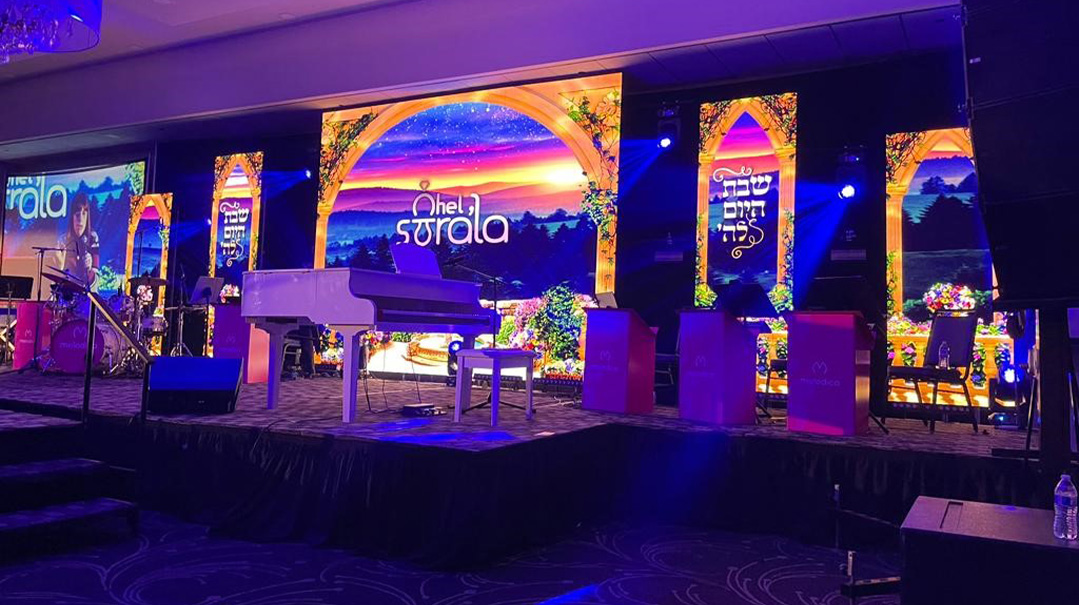
M
uch ink has been spilled, myriad tears shed, and tefillos whispered over the plight of Klal Yisrael’s singles. Yet Rabbi Bochner and Rabbi Ginzberg did more than just cry out. They considered: “How can we make a real change?”
At first, Rabbi Bochner questioned his involvement with singles; as director of Bonei Olam, he had more than enough on his plate. “But then I realized that there’s really no difference between helping a girl or a couple,” he says. “The girls are just one step behind.”
Today Bonei Olam assists single girls as well as struggling couples. It aids those young women with medical or genetic issues through their Kesher Networks division on the very practical level of compensation for shadchanim, and even employs a team of shadchanim (in the last three months, 14 shidduchim were made, including a 30-year-old kallah who had never before been on a date).
Before the recent Yamim Tovim — a particularly difficult time for singles — a group of women approached Rabbi Bochner and asked him to speak at a small event for singles in their 30s and 40s.
“At first, I was hesitant,” Rabbi Bochner relates. “How could I be mechazek these women? I’m not a therapist, and it’s not my specialty. But I couldn’t say no. I did a lot of homework. I asked how old these women were, because every few years in a single’s life are a different pain set and different hurt. And the truth is that I’ve learned so much from the single women — it’s personally strengthened my own emunah. So what can I do for them? I raise money to help them and bring awareness to their plight.”
But nothing could have prepared Rabbi Bochner for what he found that evening. “When I walked into the room, my heart stopped. There were so many women! These were wonderful, quality girls from good, frum homes. Seeing all these women cut into my heart. I lost my tongue — there was so much pain in that room. So many are struggling to find their way.”
Rabbi Bochner admits that the word “awareness” has lost its meaning. “We use this word for everything these days, and it cheapens the power of awareness. But here is a segment of Klal Yisrael that is pretty much overlooked. These bnos Yisrael are wonderful people, some of them are supporting their parents, some are supporting their brothers in kollel. They are such a beautiful part of Klal Yisrael, yet for the most part, their pain is getting bypassed.”
When Klal Yisrael puts their heads together, Rabbi Bochner says, great things can be accomplished. “Just look how far we’ve come in genetics and infertility. And think about the recent awareness in technology. How many tens of thousands are nizhar in technology? From the chassidim to the Sephardim, it became a national Klal Yisrael crisis. The plight of our singles should be at the forefront of the klal as well.
“It pains me because perhaps if we did more, so many more singles could be married. Maybe someone should make an asifah in a stadium for this — or at the least, at the next Siyum HaShas, let everyone stay at the end and talk shidduchim. It’s Klal Yisrael’s future.”
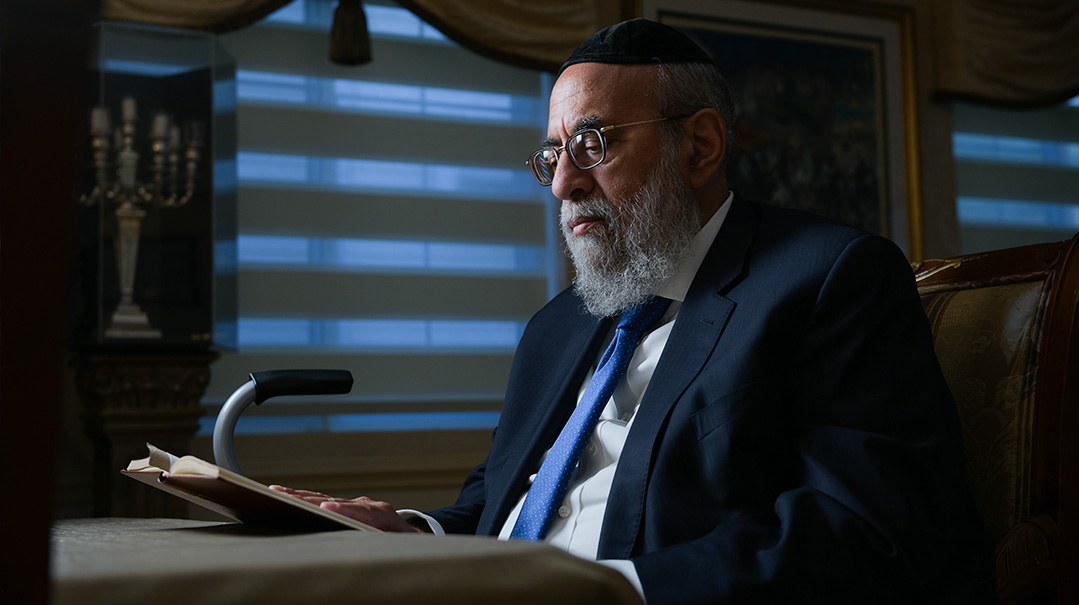
“A girl came over to me and said, ‘I’m davening so much. I say Tehillim, Shir Hashirim, and Nishamas. When will Hashem answer my tefillos?’ I answered that I am not a navi. But one thing is certain: Each tefillah, each line of Shir Hashirim and each tear is bringing you closer to Hashem, closer to the kisei hakavod. Each tefillah is treasured by Hashem. Don’t let the satan, nor anyone else for that matter, tell you differently.”
—Rabbi Chaim Aryeh Zev Ginzberg
While Rabbi Ginzberg and his wife have invested tremendous time and resources into helping single women, he believes it’s not nearly enough. “Each community, each shul, and each individual should make this paramount.”
On a recent trip to Israel, Rabbi Ginzberg met two influential askanim and philanthropists. “I said to them, ‘We must do something for all the singles!’ They looked at me and said, ‘Been there, done that. Next.’ ”
One reason for the general apathy when it comes to stepping up to the plate for older singles is that many feel it’s not the responsibility of the klal, but rather, it’s the “fault” of the singles themselves: There is a pervasive mentality that people sabotage their own future by “being too picky” or having unrealistic and/or fantasy expectations of marriage and a fitting spouse.
But Rebbetzin Ginzberg emphasizes that no one else has the right to make that cheshbon on the backs of singles, and that as a klal, we need to make sure that all singles have their dignity and respect restored.
Rabbi Ginzberg, for his part, believes part of the problem is that we don’t see immediate results. “With other initiatives the results often are immediate, and that’s very gratifying,” he says. “Yet helping singles can be frustrating. You can work for months and years and still not make a shidduch. But we have to keep trying. It’s one of the big nisyonos of our generation, and we can’t give up.” And one thing is for sure, he notes: “We need to restore the dignity of every bas Yisrael.”
Not everyone is so passionate though. There is a prevalent sentiment that the shidduch crisis is an inherent part of galus and will only be resolved with the coming of Mashiach.
“Look, I’m too small to know what is chevlei Mashiach and what isn’t,” Rabbi Ginzberg says, “but what I do know is that there is no problem, nor has there ever been a problem, that — when Klal Yisrael joins together and rolls up their collective sleeves — cannot be resolved.”
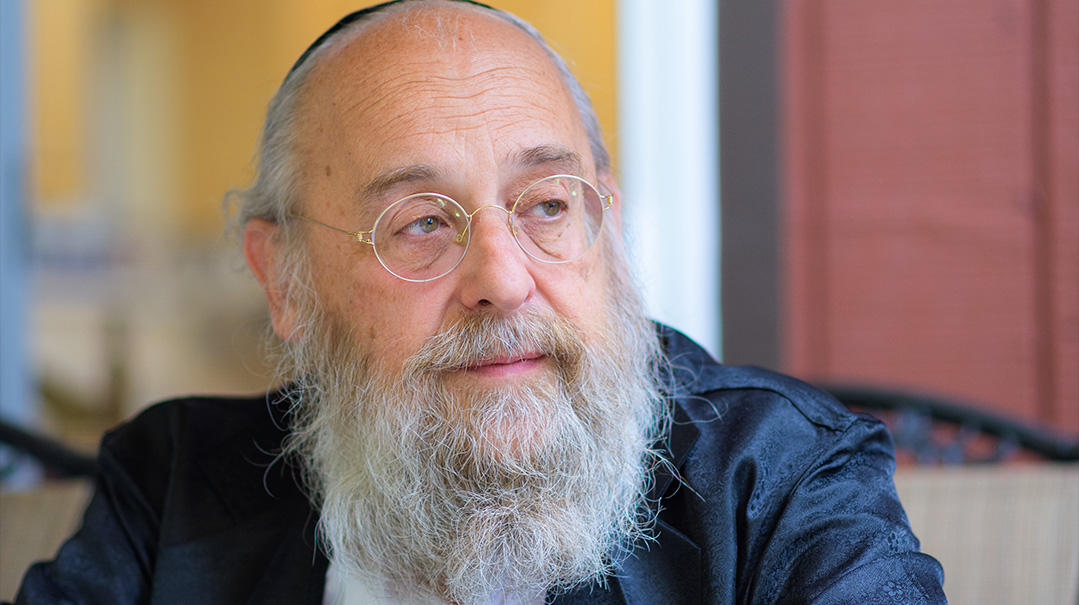
“Your pain is my pain. It doesn’t give me a moment of peace. I have a hard time sitting down to my Shabbos seudah knowing that there are single girls alone.”
—Rabbi Shlomo Bochner, founder, Bonei Olam
T
he lives of Ohel Sarala’s partners are so heavily mutually invested that their yeshuos often come on top of the other, and Rabbi Ginzberg himself is a walking treasury of the incredible connections between the couples and the singles whose tefillos on behalf of each other bring them under one unified orbit. “Yet coincidences do not exist,” he clarifies. “Hashgachah and deep spiritual connections do.”
One couple was elated as they drove home from the doctor’s appointment: After six years of waiting, they were expecting a child. When they reached out to Ohel Sarala to share the news, they learned that their partner was getting engaged that very evening.
Rabbi Ginzberg recently attended a wedding where the kallah was cuddling a newborn baby at the kabbalas panim; the guests assumed it was her niece. But when the kallah saw the Ginzbergs approaching her, she said, “This is my baby! I davened for this baby!” Although the kallah had never met her Ohel Sarala couple before her wedding, she sent them a wedding invitation through the organization, and they were finally able to share their mutual joy together.
Another couple, married for six years without a child (the doctors had given them zero chance), credited their miracle baby to the tefillos of the girl who davened for them. During the long, difficult labor, the couple sent a message to their Ohel Sarala partner to let her know that they were davening because “we know that this baby was only because of you.”
Six weeks later this girl met her husband, after she hadn’t had a shidduch suggestion in a year and a half.
Sarala Ginzberg’s own best friend got married shortly after signing up for the Ohel Sarala initiative, and traveled with her husband to Sarala’s kever for this past yarzheit on 13 Kislev.
Yet not every Ohel Sarala partnership ends with a jaw-dropping story. There are some young women who have tried every segulah: Some are davening for their third or fourth couple. Others have become jaded by the miracle stories, begging for a stop to what they call “segulah vending machine yeshuos.” Instead, they prefer to emphasize the deeper benefits of the program: the discovery of true connection to another Yid in pain, and the collateral deeper connection with Hashem.
A single woman was in shidduchim for over six years when she received the news that “her couple” was expecting after 11 years of marriage. She later wrote: “I was dancing in my bedroom, crying with joy, happier than I could possibly be at my own chuppah.”
These women find meaning and purpose in doing chesed at the highest level where the recipient doesn’t even know who the giver is. As one girl shared, “I felt like I had a higher mission. I’ve become more on top of my davening because I’m responsible for someone else.” Another girl wrote that since she began davening for “her couple,” it was the first time in her life that she really davened.
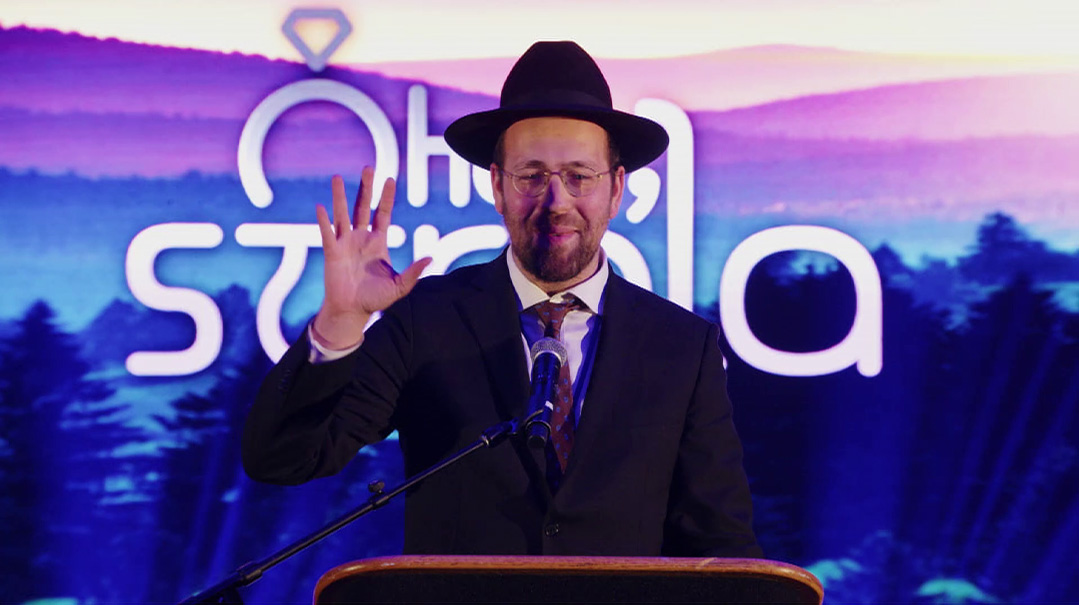
“When I told someone that 700 girls would be coming for Shabbos, they said, ‘Wow! Kein ayin hara.’ I said, ‘No! Make an ayin hara! No girl on this shabbaton should come back next year!”
—Rabbi Boruch Goldberger, director, Ohel Sarala and Vzakeini
W
ith over 10,000 members, Ohel Sarala has become a veritable movement. There had been talk in the past of a live event to unite the young women, who do so much for the couples. They daven for their couples and give a wide range of donations on their behalf. Finally, they’d have an opportunity to come together. And it would be a “no stigma” Shabbos, with no therapists and no shadchanim waiting in the wings, and no photographers either, in order to protect their modesty. The young women themselves would be the guests of honor, treated with the kavod of their married counterparts.
“My younger siblings are married with children,” shared one woman. “Each time my parents look at me, I feel their sadness. Shabbos is always hard, I feel like I never belong. But here, I finally felt I had a place.”
“I met so, so many girls over Shabbos, and really heard their struggles,” says Rabbi Boruch Goldberger, director of Ohel Sarala and Vzakeini, and CMO of Bonei Olam. “Arranging this shabbaton is not part of my job description per se, but I felt it was so important to give these girls a lift. And in a world where girls are constantly being showcased and the pressure is on to impress, this was a safe haven for them, where they were treated with dignity as the mature adults they are.”
One of the main attractions was the Bochners themselves, who sat in the lobby with the girls until 2:30 a.m., listening, offering advice, and giving brachos. “The most important thing I did was validate their pain,” says Rebbetzin Chanie Bochner, who today has thousands of babies to her credit, but never had one of her own.
For Rabbi Ginzberg, the Shabbos was a series of its own lessons. “One is that we can take no victory lap on achieving the number 4,000, as there are still so many singles who are in such pain,” he says. “Instead, it just intensifies the overwhelming need to do more, until every single finds her zivug and every couple welcomes their new baby into their home.”
One of the most stirring moments of the Ohel Sarala weekend came during a live Q and A session with Mir Rosh Yeshivah Rav Elya Brudny. A microphone was passed among the audience of 700 girls, giving them the opportunity to ask questions.
One girl in the back of the room took the mic and stood up. “Sometimes there are actually years in between viable shidduch suggestions for me. Does there come a point where I have to say ‘if’ and not ‘when’?”
Nobody in the room moved. All eyes were fixed on the Rosh Yeshivah.
“I hear the question and the pain in your voice,” Rav Brudny replied. “I am not taking this question lightly. Part of being a human is worrying and dealing with anxious thoughts. And you know, there are many 18-year-old girls who are also asking ‘if.’ I was a 20-year-old bochur in Brisk and I asked the same question.
“And my answer is: ‘Hayad Hashem tiktzar? — What, is My power limited?’ We should expect it to come, and it should be bekarov! I give you a brachah that very soon you will say, ‘Can you imagine that just recently I publicly asked ‘if?’ And now look what Hashem has done for me!’ ” —
“I give you a brachah that very soon you will say, ‘Can you imagine that just recently I publicly asked ‘if?’ And now look what Hashem has done for me!’”
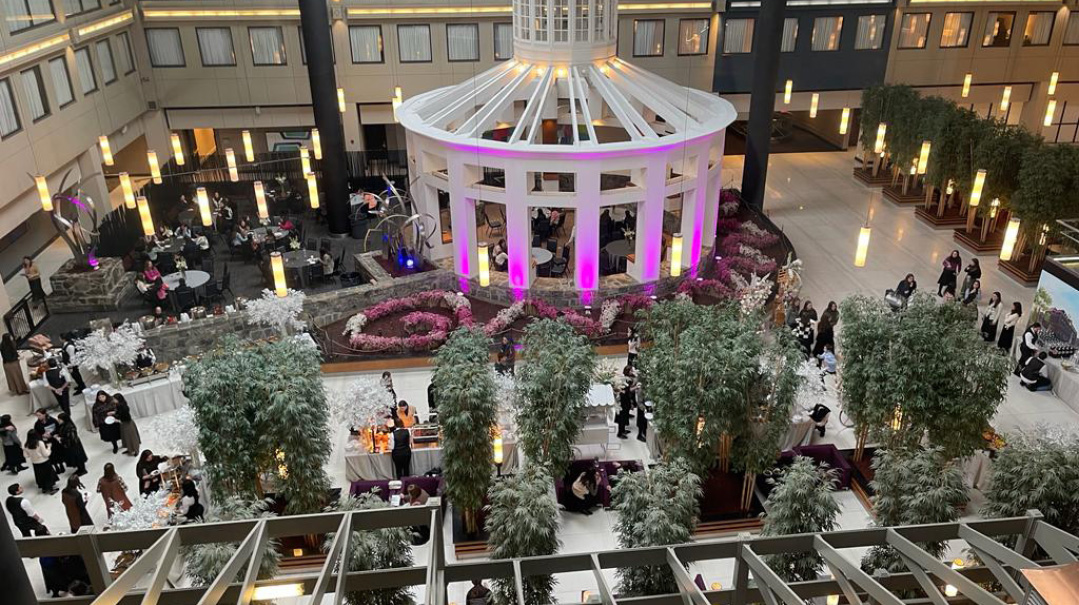
From a Place of Hope
In addition to helping couples struggling with fertility issues, Bonei Olam also assists single women with fertility preservation.
“At a certain point, single women reach the age where preservation is advisable,” says Rabbi Bochner, “but it’s hard for them to find support. Many people would prefer not to have this discussion, but we have to approach this challenge.”
It’s especially gratifying for the Bochners to see these women eventually marry and able to have children, made possible because of prior preservation. Rabbi Bochner urges single women to think about preservation; yet because it’s an emotionally draining process (though the actual procedure is very minimally invasive), the girls need a lot of support, which is often elusive.
“Many of these young women have no one to turn to,” says Rabbi Bochner. “It’s too painful for them to talk to their parents, and it’s not appropriate for them to share with their siblings.”
And it’s also not something donors are used to, or even comfortable, sponsoring, even though the procedure is costly.
According to Mrs. Esther Kleinman, the Bonei Olam counselor who runs the initiative, called Project Tomorrow, there’s been a shift in expectations and reality checks. “Reality has hit that not every girl is going to get married in her 20s,” says Mrs. Kleinman. “There are girls getting married in their upper 30s and 40s. And preservation is the best insurance policy for them to build a future family.”
While she’s not comparing the angst to that endurred by couples going through fertility treatments, at the end of the day, the single woman is completely alone. “We want to take away the alone factor by assisting on all levels: physical, emotional, and financial. This is not anyone’s plan A, but we try to put a positive spin on it: It’s the hope that the future will change. It’s not coming from a place of despair, but from a place of hope.”
“I give you a brachah that very soon you will say, ‘Can you imagine that just recently I publicly asked ‘if?’ And now look what Hashem has done for me!’”
—Rav Elya Brudny, Rosh Yeshivas Mir
“I came here to share in the tzaar, to be a part of it.”
—Rav Sholom Kamenetsky, Rosh Yeshivah, Talmudical Yeshiva of Philadelphia
“Real menuchah comes from appreciating how far you’ve come. Every Shabbos, take a menuchah moment. Try to appreciate your milestones. See which middah you overcame, which difficult relationship you navigated. This energy is what spurs growth.”
—Mrs. Dina Schoonmaker, teacher, lecturer, and relationship counselor
“Right now, this group of women fits into a room. In a hundred years from now the number of neshamos of the future generations of offspring will fill this city.”
—Rabbi Yechiel Spero, author and lecturer
“So many of the questions, the stresses, and the pain are because many single girls feel ‘less than’ and obligated to compromise on their dignity and self-respect in an effort to get married. However, this idea that we are intrinsically daughters of the King and need to carry ourselves that way empowers me to just be. Hashem, our Father, our King, is holding us and that’s all I need to know....”
—an Ohel Sarala member
“We felt like we’re special the way we are, we felt a part of something and finally had the feeling of not being the odd one out. Sometimes it feels like we’re alone on this journey, but to be part of this incredible Shabbos and realize how many girls there are just like us, makes it less lonely. Because we’re all in it together.”
—an Ohel Sarala member
“You were created by the greatest Artist, with your best interests in mind. You are exactly the way you need to be! The next time you find yourself saying, ‘I’m not good enough, smart enough, tall enough, pretty enough…’ remember it’s nonsense! You are incredible! You need to treat yourself like a queen and carry yourself with royalty.”
—Rabbi Joey Haber, Magen David Yeshivah High School, Tiferet Torah synagogue, Deal, NJ
“When I saw my single sister swaying, crying, and davening, I said ‘Wow! Is it Yom Kippur today and no one told me?’ It looked like Neilah. When she finished davening, I said, ‘What’s going on? Did someone die?’ She said, ‘No, it was Minchah.’ ”
—Rabbi Yossi Bensoussan, mashgiach ruchani at Yeshiva High School of Cleveland
“Hashem’s love for us is unconditional. Don’t think that you’re not married because you did something wrong. It’s because Hashem loves us and this is the best place for you to be right now.”
—Mrs. Jackie Bitton, motivational speaker
(Originally featured in Mishpacha, Issue 945)
Oops! We could not locate your form.

